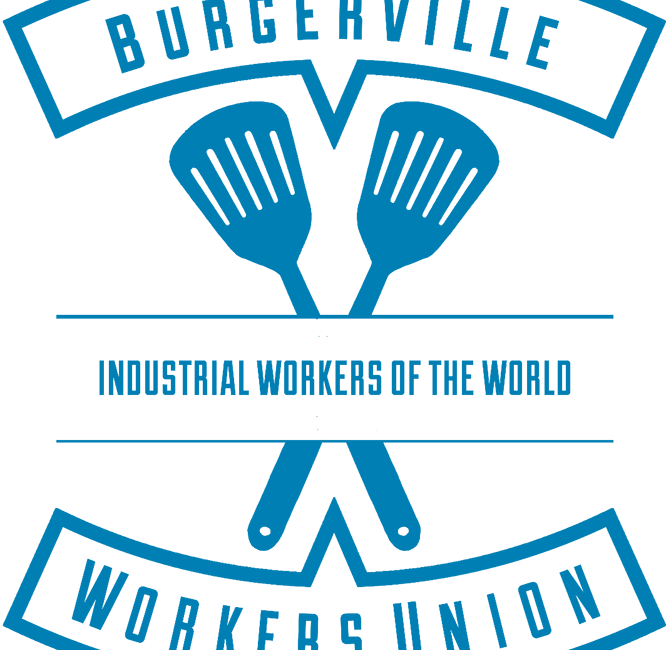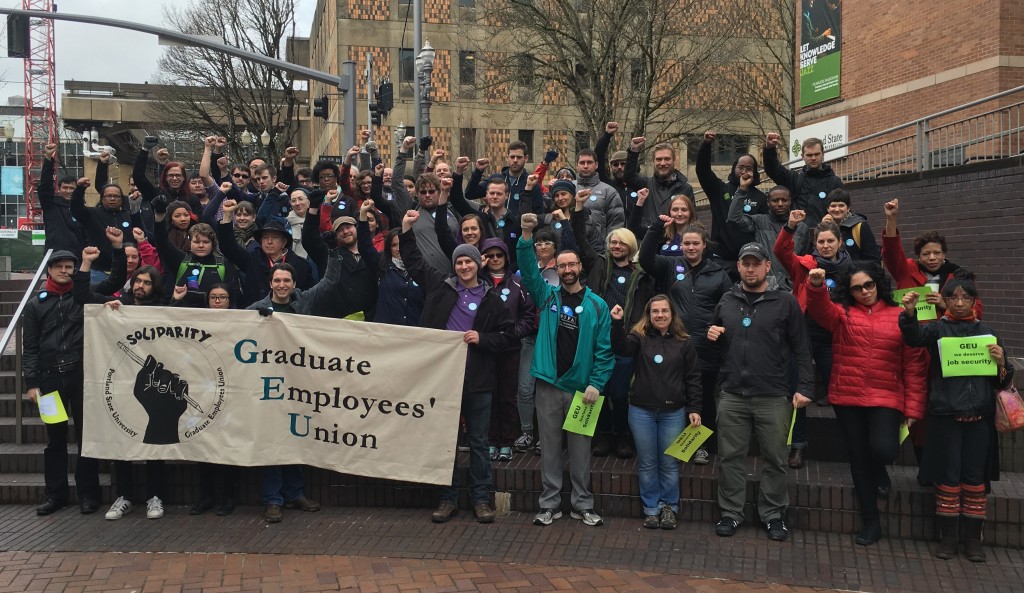by Eli Fishel
Reprinted from Street Roots
I believe that everyone working, 30 to 40 hours a week especially, should be making enough to live, at the very least. They should also be making enough to move forward in their lives.
My name is Eli Fishel, I’m 18 years old, and I’m a fast food worker. When I was 16, I worked at Chuck E Cheese’s, and I was living with my parents. When I was 17, my living situation was not safe anymore, so I moved with four roommates into an apartment.
My monthly living expenses were probably $600 after all my bills, including groceries. In May 2015 I got a job at Burgerville. They paid me about $600 a month. For the first couple months I also worked for Chuck E Cheese’s.
At Burgerville I was making $9.47 an hour, and getting 30 hours a week. I got a 10-cents- an-hour raise in December, right before minimum wage was supposed to go up. That’s the only raise I’ve gotten. There is a review and raise process. You have to be working there six months, and 30 hours a week, to get healthcare.
I was not able to pay my bills with my Burgerville income. So I started also babysitting for my extended family after school. I’m not working 30 hours a week at Burgerville anymore because I’m actually making more money babysitting.
I was in high school. I graduated last year. My plans are to go to Clark Community College. But, I have not had the time or the money to think about that yet.
I’m a member of the Burgerville Workers Union. Our vision is a $5/hour raise for all hourly workers, health care benefits for all workers, and fair and consistent scheduling. We also want a more sustainable workplace. There are things we need in order to work; things like childcare and help with transit. We have hundreds of people who are busing to work.
The BVWU is by and for Burgerville workers. Everyone in it and everything about it is being decided upon by Burgerville workers. It’s a democratic organization.
I need a raise now. The cost of living is going up, and I don’t know if I can make it from paycheck to paycheck. The minimum wage legislation is great, but $15 in five years is too long for me to wait. So my co-workers and I are coming together to do something about our situation now. The BVWU vision is that all hourly workers get a $5-an- hour raise starting immediately. This is fair. This is what I need to survive and build a life for myself. Without a raise, I don’t know what will happen – if I’ll ever be able to go to school, if I’ll ever not be living on the edge, or even if I’ll be able to keep my apartment.
I want to make enough to live.
A raise is very important, but the workers in the union also have a vision for change. The most important part of this is that we are standing together, realizing that we’re not alone, and that we can work together.
I hope the BVWU inspires other workers. The organizing and standing together that we’ve done to fight for some power in the system that’s built against the working people can be done in other places as well.
Learn more at www.burgervilleworkersunion.org/
Eli works at Burgerville at the Vancouver Plaza. She is a leader in the Burgerville Workers Union and helped launch the union on April 26, 2016.






